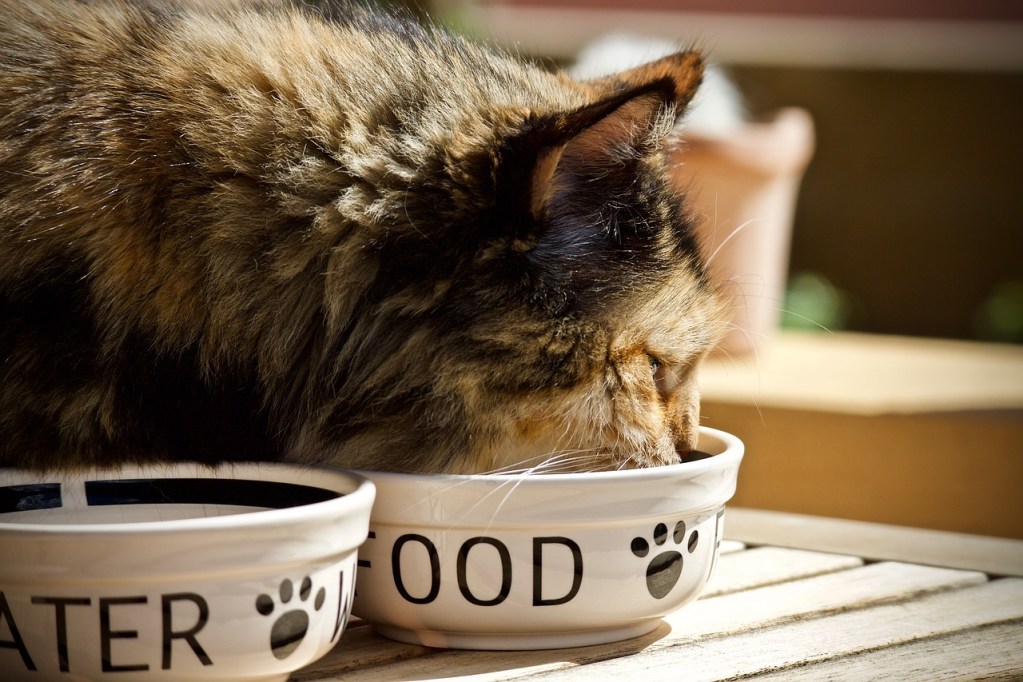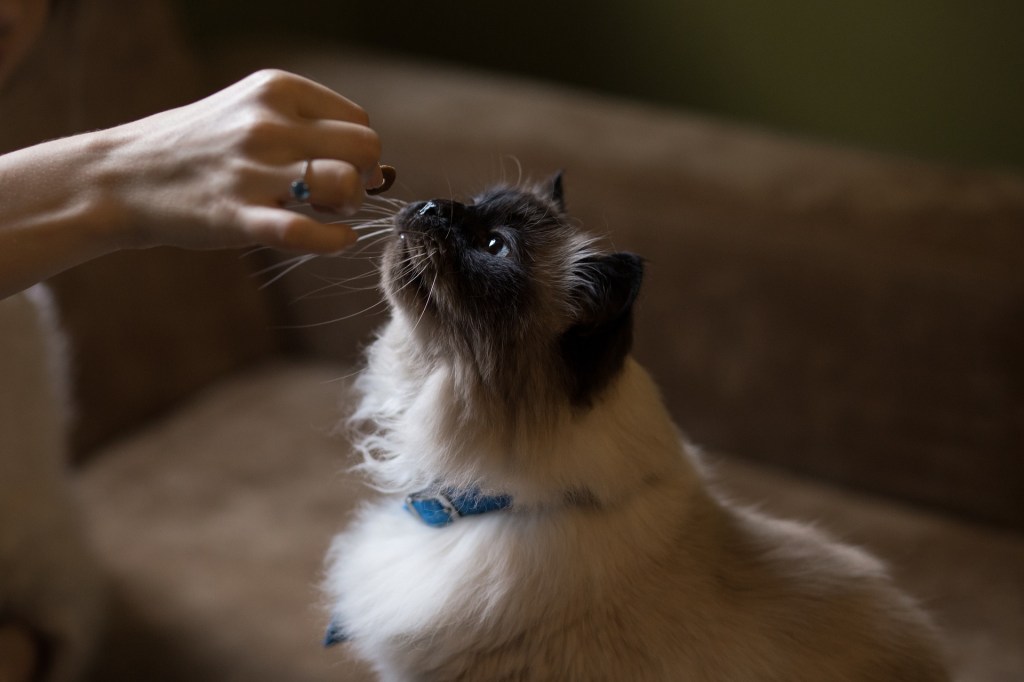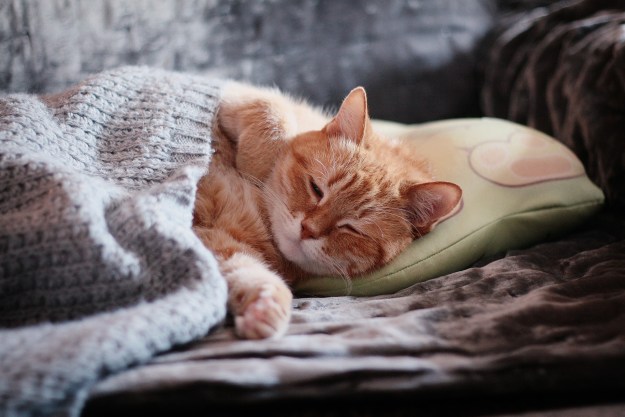When you’re preparing a meal, does your cat tend to join you in the kitchen, or try to hop up on the table when you’re sitting down to enjoy your food? Many cats think that human foods are delicious, even though they already have their own cat food. That doesn’t mean that your cat can’t ever enjoy a little human food here or there, but before you give your cat a treat, it’s important to make sure that the food you’re giving him is safe. Some common foods, like onions and grapes, are toxic for cats, but if you do your homework and understand which foods are safe for your cat, you can share a little bit of them with him on occasion.

10 human foods cats love
According to Purina, your cat can have many of the meats that you enjoy in your home. Lean meats such as beef, chicken, and turkey are all OK for kitties, as long as the meat is cooked through. Make sure that you remove all of the skin and bones, too.
Fish is full of omega-3 fatty acids, which is good for your cat’s health. Make sure that the fish is cooked and that you remove all of the bones.
Cats can also enjoy some brown rice that’s cooked without butter or spices.
For breakfast, your cat can enjoy a little bit of scrambled or boiled eggs. Just make sure not to give him raw eggs, or eggs that have been prepared with butter and milk.
WKBW News explains that bananas can be a tasty treat for cats. Bananas are largely healthy, but they contain lots of sugar, so only give your cat a taste once in a while.
The same goes for cheese: feed it sparingly. Most cats love cheese, which is high in calcium. But most also have trouble digesting the lactose in cheese.
Cats can eat berries, including blueberries and strawberries. These berries have lots of antioxidants but a lower sugar content, making them a wonderful healthy choice for your favorite felines.
While cats don’t need vegetables, some are healthy options. For instance, carrots can be tasty, but only give your cat cooked ones. Raw carrots are too hard, so he could choke on them.
Pumpkins are another excellent veggie for cats. These are full of fiber and nutrients, and they can help relieve digestive issues including diarrhea and constipation. Canned pumpkin is easy to feed, but make sure it’s pure pumpkin. Pumpkin pie filling, which looks similar, is full of sugar and spices.
According to AvoDerm, cats can even have a bit of avocado. This fruit has lots of vitamin A, C, E, and B6, which contribute to a healthy coat and skin.
Don’t give your cat these human foods
While the above people foods are safe in moderation, there are some you should seldom or never give your cat. According to Purina, don’t give your cat chocolate, grapes, raisins, or nuts. It’s also important not to share anything with caffeine or alcohol. In addition, your cat shouldn’t eat any foods from the allium family, which includes garlic, onions, shallots, chives, and scallions. Raw meats and fish can also be harmful because of their salmonella risk. Likewise on the danger list is raw bread dough.

How often to feed your cat human foods
Your cat can regularly have the human foods we recommend, except bananas and cheese, which you must dole out rarely. Remember that feeding your cat any human food can easily upset his digestive system. Also, introducing too many of these human foods may make your fur baby eat less of his own food, which is designed to be nutritionally balanced so that his body gets what it needs to stay healthy. WKBW News notes that it’s important to view these human foods as additional treats, and that they should be part of your cat’s normally balanced diet. You can ask your vet about any dietary changes to ensure that your cat stays healthy.
When feeding your cat these human foods, introduce just a little bit, one food at a time. You can gradually increase the amounts of these new foods that your cat gets as treats, but avoid making any sudden diet changes. Cats’ digestive systems are sensitive, so big food changes can cause diarrhea or vomiting. If your cat doesn’t seem to tolerate a certain food, try something else that he might like. Remember to only feed these human foods when they’re prepared specifically for your cat; never add spices or seasonings, or any fats such as butter and oil. If you’re careful, offering these tidbits on fun occasions, your cat can enjoy some of the same delicacies you do.
Editors' Recommendations
- Wondering why cats chirp? Fascinating reasons why your cat chirps at birds (and you)
- How to cat-proof your balcony before the unthinkable happens
- There’s a totally normal reason cats throw up after eating grass – here’s why
- Your cat trilling is actually a good thing – here’s why
- This video of a confused kitty discovering a cat water fountain is adorable



